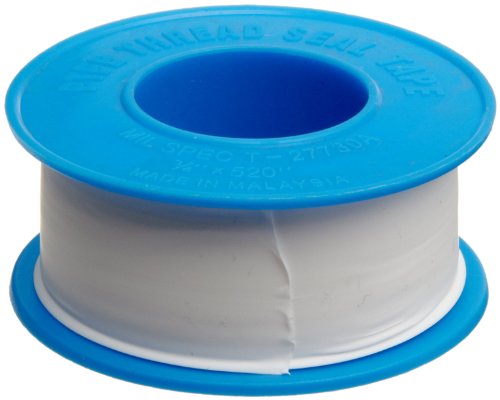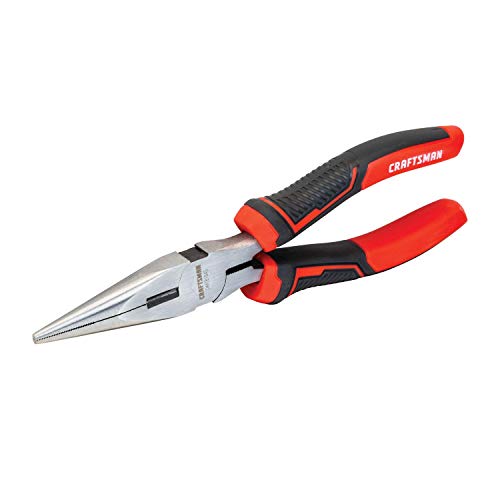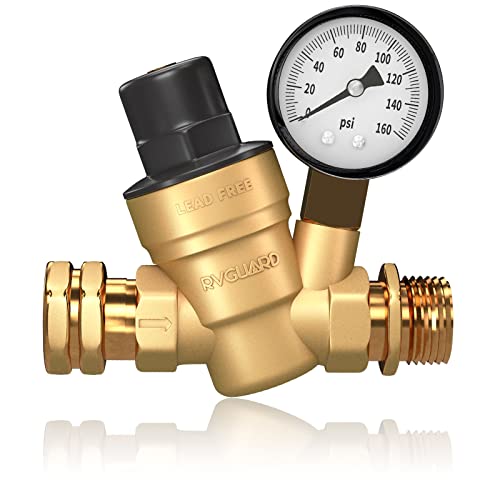40 Important Tools You Must Have In Your RV Tool Kit
71 shares Buying an RV is an exciting purchase. I remember my first 1987 Tioga fondly, but I’ll never forget the realization that an RV…

Buying an RV is an exciting purchase. I remember my first 1987 Tioga fondly, but I’ll never forget the realization that an RV requires a lot of RV accessories. From the moment your RV becomes yours, you’ll need to assemble your RV tool kit.
From additional tools to help with RV DIY projects to wire cutters that will aid your efforts to make adjustments to your RV’s electrical system, there’s a lot to consider. Lucky for you, we’re going to cover the most essential tools you must have in your RV tool kit.
*This post may contain affiliate links. Please read our disclosure policy for more info.
Build The Best RV Tool Kit
Your RV tool kit will change as your gain experience, but these are my top 40 selections, based mostly on my own trials and errors.
Disclaimer: Every RVer needs good tools. But tools only go as far as the person wielding them can take them. Do your research to make sure you’re prepared with the right knowledge to perform RV repairs. Consult your RV owner’s manual early and often and never hesitate to reach out to a professional for help.
-
 Buy on CampingWorld.com
Buy on CampingWorld.comRV and trailer tires are the foundation of your motorhome. Therefore, it's essential that you maintain the correct tire pressure. Failure to maintain optimal tire pressure causes inefficiency and can ultimately lead to a time-consuming flat tire. So one of the best RV tools to keep around is a quick tire inflator.
-
 Buy on CampingWorld.com
Buy on CampingWorld.comBefore you use your inflator, however, you need a tire pressure gauge to check how much pressure your RV or truck tires are currently holding. Check the tire sidewall for recommended PSI. And don't forget about your spare tire!
-
 Buy on Amazon.com
Buy on Amazon.comA power drill will save you a lot of time compared to used screwdrivers to check or repair RV components. Personally, I use my cordless drill set the most when installing new hooks or accessories to improve the overall organization of my RV's interior.
-
 Buy on REI.com
Buy on REI.comThis is honestly something that everyone should have. RVers will find them useful for so many purposes. A quality multi-tool includes multiple screwdrivers, pliers, knives/saws, a bottle opener or corkscrew, and sometimes more.
-
 Buy on Amazon.com
Buy on Amazon.comThese will really come in handy if you ever find yourself having to change the hitch ball on your tow hitch. In combination with the right socket wrench set, they can also help you make adjustments to other hitch equipment that needs to be tightened to the right specs for safe towing.
-
 Buy on CampingWorld.com
Buy on CampingWorld.comA telescoping ladder is a great addition to the best RV tool kit if you don't have an RV ladder mounted to the rear or side of your camper. It's a great way to get access to your RV roof and it compresses so that it can easily be stored, even in smaller RVs with limited space.
-
 Buy on 4WheelParts.com
Buy on 4WheelParts.comServicing things like RV tires, brakes, and suspension components requires taking the weight off your RV tires. A bottle jack that's properly rated for your RV's axle weight is the best way to jack up your RV to install a spare tire or make other repairs.
-
 Buy on Amazon.com
Buy on Amazon.comYou'll want several sizes of flathead and Phillips head screwdrivers for making RV repairs or renovations. If you're looking for a way to save space, look for a multi-bit screwdriver as an alternative to carrying around multiple screwdrivers.
-
 Buy on Amazon.com
Buy on Amazon.comI tend to use mine the most for making adjustments to my bike seat and handlebars, but RV travelers that don't carry bikes or e-bikes can also benefit from keeping a set of Allen wrenches in their RV tool kit.
-
 Buy on Amazon.com
Buy on Amazon.comNo matter how many wrench sizes you already have, an adjustable wrench is a must. Sometimes, it's simply impossible to find the perfect wrench size for the nut you're trying to loosen. This is where your adjustable wrench will keep you from damaging the nut or bolt and putting yourself in an even deeper hole.
-
 Buy on Amazon.com
Buy on Amazon.comA proper mechanic's tool kit is another great addition to your RV arsenal. Along with socket wrenches, it'll come with the various short and deep socket options you need for engine maintenance, changing the oil on a portable generator, and so much more.
-
 Buy on Amazon.com
Buy on Amazon.comThose cordless drills you added to your RV tool kit earlier are great, but they won't do you much good without a proper set of drill bits. In addition, your drills should come with several drivers of different lengths and different style heads so you can work with various types of RV screws.
-
 Buy on Amazon.com
Buy on Amazon.comElectrical tape is often overlooked as an RV essential, but it's vital anytime you're making electrical repairs. Trust me, other kinds of tape don't suffice for insulating electrical wires after splicing. I have a scary midnight near-electric fire in my past trauma to attest to this. Use electrical tape whenever you're dealing with conductive RV wiring.
-
 Buy on Amazon.com
Buy on Amazon.comI measure things in and around my RV all the time. Sometimes it's as simple as re-measuring the length of my trailer to make sure I'll fit in a campground. Other times it's measurements to help me hang my US map of all the destinations I've visited inside. Odds are, you'll use your tape measure more than most of the other items in your RV tool kit.
-
 Buy on Amazon.com
Buy on Amazon.comIf the socket set you acquired earlier didn't come with metric wrenches, add some to your RV tool kit. With all the different bolt and nut sizes out there, having as many wrenches as possible will set you up for easy installations or removals, regardless of what you're adding or taking out of your RV.
-
 Buy on Amazon.com
Buy on Amazon.comSplicing wire together isn't a complicated task, but it's much easier and safer with the proper connectors. These will especially come in handy if you're making any upgrades to your electrical system to accommodate more extended boondocking adventures.
-
 Buy on 4WheelParts.com
Buy on 4WheelParts.comThere are so many ways you can use an air compressor as an RVer. From inflating watersports equipment like paddleboards to clearing out vents and ducts when performing annual RV maintenance, an air compressor is a super handy tool. It can even be used in place of a leaf blower to clean up around your campsite.
-
 Buy on Amazon.com
Buy on Amazon.comThis item is for those times when your regular pocket knife won't cut it...literally. A utility knife can be a great tool for cutting packaging or upgrading your RV's interior. The last time I used mine was to make quick cuts in laminate flooring after ripping out some ghastly old shag carpet.
-
 Buy on Amazon.com
Buy on Amazon.comRV roof repairs and maintenance often require resealing roof seams or the seals around your roof-mounted RV appliances. Most RV sealants are sold in the same containers as caulk used for residential applications. That's why a caulk gun makes this list so you can easily reseal worn roof or window seals when the need arises.
-
 Buy on Amazon.com
Buy on Amazon.comAny RV electrical repairs require both wire strippers and wire cutters. These instruments are specifically designed to help you safely handle wires that have a live electrical current running through them. Of course, you should shut down the power to said wires before making repairs, just to be safe. And you should never be ashamed of seeking professional assistance if you're uncomfortable tinkering with the electrical in your RV.
-
 Buy on Amazon.com
Buy on Amazon.comThis is a great tool for owners of older RVs or camper vans who are more likely to encounter worn-out wiring. Keeping extra wire handy will allow you to remove compromised sections and splice in a new wire to get your RV back up and running the way it should.
Check your RV for gauge before shopping for electrical wire.
-
 Buy on Amazon.com
Buy on Amazon.comThis one is particularly relevant for me, as I've recently found that the drain plug on my water heater is suffering a slow leak. Re-tightening simply isn't doing the trick. So, I need to remove and apply thread seal tape before re-installing the drain plug.
This type of tape is really important for many different RV plumbing repairs. I've also used it when re-installing an RV toilet after replacing the flange seal, for example. Keeping this tape in your tool kit is the difference between doing the job and doing the job right when tackling any RV plumbing DIY projects.
-
 Buy on Amazon.com
Buy on Amazon.comWhile pliers were on our list of tools included with most multi-tools, those pliers typically have pretty blunt ends. Needle nose pliers, on the other hand, are perfect for harder-to-reach applications and great for precisely pinching connectors when finishing electrical repairs.
-
 Buy on Amazon.com
Buy on Amazon.comThis is one power tool that might seem out of place on this list, but let's explain. This is an RV renovation tool that can be used for cutting, grinding, polishing, deburring, and finishing a variety of surfaces. For RV applications, it's best to choose a cordless variety with a rechargeable battery, if you can.
-
 Buy on Amazon.com
Buy on Amazon.comFor testing your RV's battery system, a multimeter is an essential tool for making repairs to complex electrical systems. A multimeter can be used when troubleshooting RV thermostats, measuring the efficiency of your solar panels, and much more.
-
 Buy on Amazon.com
Buy on Amazon.comWhile there are other ways to remove lug nuts on RV tires, a lug wrench is the best way. Along with your other tire-related tools, keep a lug wrench in your RV or tow vehicle so that removing lug nuts isn't the crux of your tire-changing experience when it happens.
-
 Buy on Amazon.com
Buy on Amazon.comThere's a laundry list of applications for which bungee cords will help you: keeping water containers upright in your truck bed, securing heavy tools so they don't slide around, expanding your carrying capacity by allowing you to strap camping gear to your roof rack, etc., etc.
I recommend having a variety of different lengths and thicknesses so that you have the right bungee cord for the job. The good news is that many gas stations along your RV route will sell multi-packs of this essential RV tool.
-
 Buy on Amazon.com
Buy on Amazon.comTo my knowledge, RV manufacturers haven't quite built pressure regulation into RV plumbing systems. The problem here is that water pressures will vary depending on where you're camping, so a pressure regulator is a small, but vital, addition to your RV tool kit when it comes to protecting your RV's internal pipes and water tank.
-
 Buy on REI.com
Buy on REI.comPersonally, I'm a huge fan of headlamps over flashlights because they allow you to keep your hands free for more important tasks. But the point here is to have a way to illuminate your campsite when you can't find your other RV tools or you're trying to set up camp after dark.
-
 Buy on Amazon.com
Buy on Amazon.comAt your next gas station stop, pop inside and grab yourself a little tube of super glue. It's great for small repairs on the inside and outside of your RV, so long as you're shooting for a permanent application. Just be careful not to glue your fingers together!
-
 Buy on Amazon.com
Buy on Amazon.comThis is another variation of pliers that I strongly recommend adding to your arsenal. Locking vise grips allow you to maintain a better grip without constantly squeezing with your maximum strength. Really useful for holding anything in place temporarily.
-
 Buy on Amazon.com
Buy on Amazon.comA level is something you'll use pretty much every time you set your RV up in a new campsite. Add this item to your RV tool kit to make sure you level and stabilize your RV or travel trailer appropriately before setting up the rest of your camp.
-
 Buy on Amazon.com
Buy on Amazon.comLast, but certainly not least, you'll need a compact way to keep your RV tool kit organized. If you go all-in on acquiring everything on our RV tool kit list, you may need more than one tool bag to contain everything.
Of course, items like an air compressor will require a larger toolbox for dedicated storage. In addition to providing a safe space for your RV toolset, your tool bag should provide easy access to your RV tool collection.
Conclusion
Swing into the next hardware store along your RV road trip to add a few of these important tools to your RV toolkit. Having the right tools is the difference between a half you-know-what patch job and the ability to properly repair broken RV parts so you can get back to the fun of RVing!


Similar Posts
12 Best RV Folding Camping Tables to Expand Your Outdoor Space
Upgrade your RV camping experience with the perfect folding table! These 12 top-rated folding tables are compact, sturdy, and designed to make your outdoor adventures more comfortable and convenient. Discover the best options for your next trip!
The 8 Best RV Wood Stoves for a Cozy Winter
Do RV wood burning stoves work? Can you live the RV life and still enjoy the comforts of a crackling fire? Yes! Here are several models we recommend.
The 5 Best RV Pet Temperature Monitors to Keep Your Pet Safe while RV Camping
So, you’re thinking of going RVing with your dogs and cats? There’s lots to learn about pet safety when hitting the road with your beloved…
12 RV Bathroom Storage Ideas to Stay Clutter-Free
Keeping your RV neat and organized can be a major drag. Small spaces show clutter easier than a big house, which is why it’s important…
15 RV Bumper Storage Ideas to Maximize Space
Storage can be a bit tricky when traveling in a small RV or camper van. Luckily, many creative folks have come before you and there…
17 RV Organization Tips for a Small Space
Living in an RV full-time can sometimes feel cramped and cluttered, especially if you don’t have a good process for organizing your stuff. Your RV…